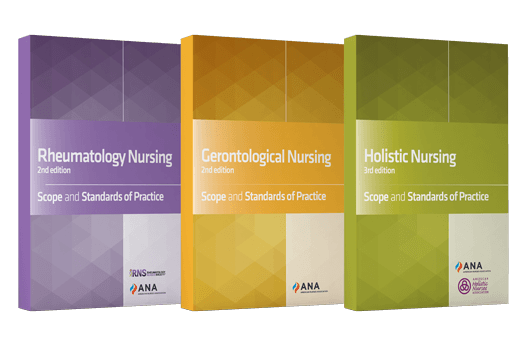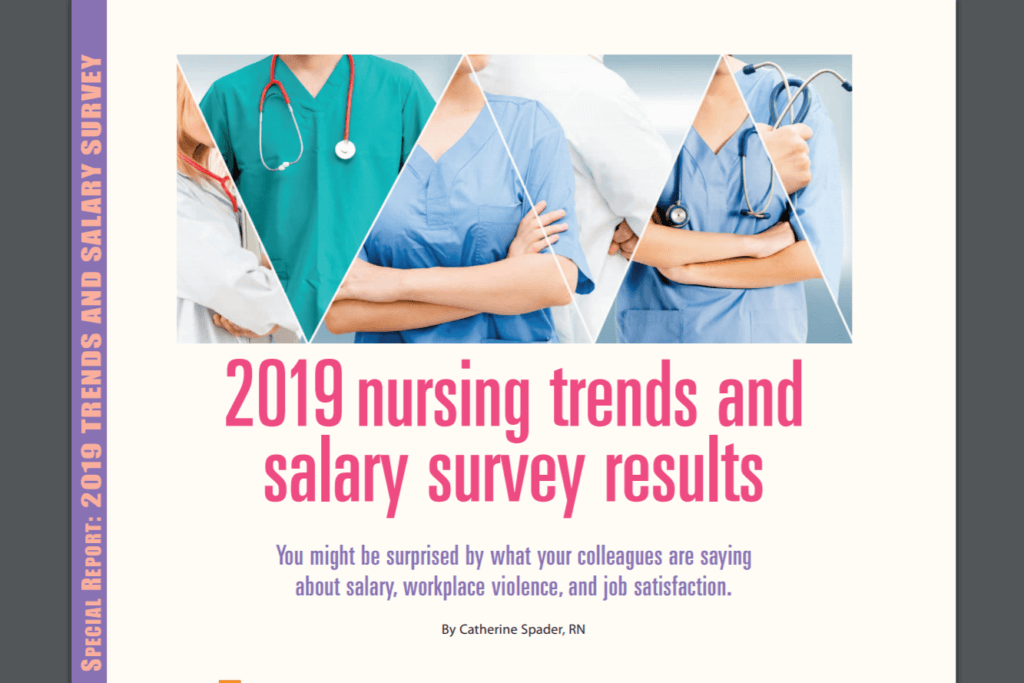You have many choices of places to work. Although about 60% of all registered nurses work in hospitals, that’s not your only choice. You can go for a clinic, office practice, home care, long-term care, governmental agency work, the military, a school, rehabilitation, and ambulance and helicopter transport services. You even have options in biotechnology, research, law, publishing companies, the media, and the pharmaceutical industry, to name a few. The sheer number of opportunities available to registered nurses has significantly increased the demand. The US Bureau of Labor estimates that 1.1 million additional nurses are needed by 2022. You’re in the right field!

Are you a baccalaureate-prepared nurse? If so, you have a competitive edge in the job market. Most states have not yet mandated a BSN for initial nursing licensure, but getting a BSN greatly improves your career flexibility and mobility. Some employers want to hire only baccalaureate-prepared nurses. To achieve Magnet® status through the prestigious ANCC Magnet Recognition Program®, hospitals need 80% or more of their nurses to have a BSN or higher degree in nursing.
If you’re a registered nurse without a BSN, there’s never been a better time to get one. Most BSN completion programs are made for the working nurse and have built-in flexibility. There may even be evening and weekend classroom and clinical options. Many programs are now completely online so you can learn in the comfort of your home.
Nursing is a lifelong learning process. Continuing education courses can directly impact the quality of care you provide and patient outcomes.
Learn More
 Nursing is a lifelong learning process. Continuing education courses can directly impact the quality of care you provide and patient outcomes. At any point, you can enrich your career with resources from ANA. Discover courses, books, continuing education, certifications, toolkits and more that can help you grow and thrive professionally! ANA CE opportunities include workshops, webinars, conferences, and publications.
Nursing is a lifelong learning process. Continuing education courses can directly impact the quality of care you provide and patient outcomes. At any point, you can enrich your career with resources from ANA. Discover courses, books, continuing education, certifications, toolkits and more that can help you grow and thrive professionally! ANA CE opportunities include workshops, webinars, conferences, and publications.
Achieving nursing certification in your specialty confers a mark of professional excellence that gives you a competitive edge. Health care organizations that employ numerous certified nurses are favorably recognized by many accreditation agencies, including Magnet. Professional certification is considered evidence of your knowledge and commitment to high standards of nursing practice.
Nursing certification in your specialty confers a mark of professional excellence that gives you a competitive edge. It is evidence or your knowledge and commitment to high standards of nursing practice.
Learn More
If you’re ready to advance into a completely new nursing role, consider nursing leadership, education, research, or advanced practice. Advanced practice roles are defined in each state’s Nurse Practice Act and include nurse practitioners, clinical nurse specialists, nurse midwives and certified registered nurse anesthetists. These roles have specific education, certification, and continuing education requirements. Learn more and explore the options. Whatever your choice, ANA has resources to help you be successful in your professional path forward!







 Are you a baccalaureate-prepared nurse? If so, you have a competitive edge in the job market. Most states have not yet mandated a BSN for initial nursing licensure, but getting a BSN greatly improves your career flexibility and mobility. Some employers want to hire only baccalaureate-prepared nurses. To achieve Magnet® status through the prestigious ANCC Magnet Recognition Program®, hospitals need 80% or more of their nurses to have a BSN or higher degree in nursing.
Are you a baccalaureate-prepared nurse? If so, you have a competitive edge in the job market. Most states have not yet mandated a BSN for initial nursing licensure, but getting a BSN greatly improves your career flexibility and mobility. Some employers want to hire only baccalaureate-prepared nurses. To achieve Magnet® status through the prestigious ANCC Magnet Recognition Program®, hospitals need 80% or more of their nurses to have a BSN or higher degree in nursing.
 Nursing is a lifelong learning process. Continuing education courses can directly impact the quality of care you provide and patient outcomes. At any point, you can enrich your career with resources from ANA. Discover courses, books, continuing education, certifications, toolkits and more that can help you grow and thrive professionally! ANA CE opportunities include workshops, webinars, conferences, and publications.
Nursing is a lifelong learning process. Continuing education courses can directly impact the quality of care you provide and patient outcomes. At any point, you can enrich your career with resources from ANA. Discover courses, books, continuing education, certifications, toolkits and more that can help you grow and thrive professionally! ANA CE opportunities include workshops, webinars, conferences, and publications.







